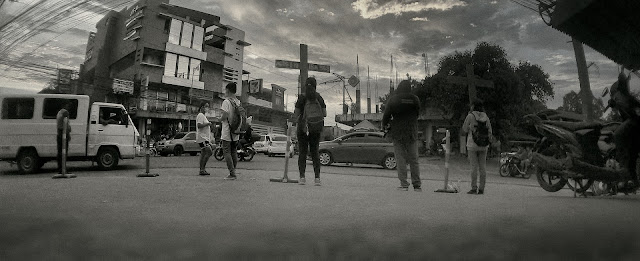Adoniram Judson (1788-1850)
This volume of two hundred and thirty pages, I must confess, is but the third such work I have been compelled to finish in a single sitting. The details contained within are simply too incomprehensible and exhausting for the soul to rightly process in slow measure. It describes a different, more severe brand of Christianity than that which we commonly know and tolerate today. It is not the type that reaches for Christ safely from a comfortable distance, but rather that which charges head-on into the fray of spiritual warfare.
At times, it seems that the faithful Adoniram and his devoted wife, Ann, were utterly alone in their terrible labor. The difficulties, the severe sickness, and the relentless hand of death all continued to pile up one after the other in an unending and worsening fashion. Their mission wears on for long, agonizing years, and with every turn of the page, there is a fresh account of life-threatening danger or profound tragedy. Such a narrative serves as a stern and necessary mirror to our own easy, modern discipleship. It reveals that the true cost of obedience is often borne in isolation and suffering, confirming that the path of the cross is indeed the only path to glory.

As one doth prayerfully read this short summary of the life and trials of the faithful Adoniram Judson, one cannot help but see that God indeed prevails, and that He remains in total and glorious control of even the most minute circumstance of man. It was incredible to read of the manner in which God saved the sacred translations when Adoniram never imagined that his eyes would rest upon them again—a true miracle of Providence. The enduring fruit of his sacrifice for the land of Burma powerfully testify to the sovereign hand of the Almighty. And to this very hour, the translation of the Holy Bible which Adoniram Judson labored so mightily to complete remains the only authentic translation of the Word into the Burmese tongue. What a monument this single, unassailable fact erects to the sustaining power of Christ! The memory of his suffering fades, but the Word of our God shall stand forever.

In response:
The Kingdom of God is advanced in great and visible strides whenever a mortal man is moved by the Spirit to see beyond the visible and fix his unwavering gaze into the vastness of the eternal. In that moment of spiritual clarity, he doth humble himself and say: "I give thee back the life I owe, and lay in dust life's glory dead." Yet, it remains a lamentable truth that we find it exceedingly difficult to let go of anything which we presumptuously assume to be ours. Our human hearts are factory of idols. If one truly desires to know the object of a man’s deepest affections, he need not search far beyond his own daily practice: he must look to that to which the man devotes the greatest measure of his fleeting time, and to that upon which he spends the largest portion of his earthly resources. In these two simple ledgers—Time and Treasure—is the true religion of the heart undeniably revealed. Did not our Lord reveal that our heart is held by what is most precious to us (Luke 12:34), and that we can only love one and not two masters (Matthew 6:24)?
The truth remains eternal: that which is wholly incomprehensible to the natural man is rendered perfectly and sweetly natural to the heavenly quickened. We must all confess that we are born blind, lacking all spiritual sight and discernment. Yet, those blessed by the Spirit, like the beggar Bartimaeus of old, demonstrate a beautiful and immediate obedience—he, even while without sight, saw in faith the Lord Christ with his spiritual eyes, calling him from afar. That in itself was already the greater miracle! And he cast off the only thing he possessed in this world—his only cover, his very life, his comfort, his dignity amidst ridicule—in order to run to Christ in absolute obedience. This act of casting off the life that is owed and receiving the life that is given is the very marker of the true Christian. It is the miraculous moment when the soul sees the Savior's worth and finds the courage to treat the world as dross, prioritizing the call of the Master above all earthly possessions and fears.
It is a spiritual deception of the gravest kind that we imagine a convenient following of Christ at a distance, rather than abiding with Him in the narrow path. We content ourselves with mere intellectual affirmation of His teachings, substituting obedience with a polite, yet ultimately vain, acknowledgment. We engage in a dangerous process of selection, calculating which sacred command shall exact from us the least temporal cost, rather than embracing that which demands our absolute and entire dependence upon the Savior. Our supposed devotion remains tragically divided—it is a love rendered unto Him, but also a fierce and persistent love reserved for our own wretched self-interest. It is thus impossible to bear the weighty mandate of kingdom fruitfulness, with all the inevitable cost it entails, apart from the absolute annihilation of the self. Our Lord already bore the necessary weight in leading us down that arduous, narrow road; we must now bear, by His grace, the corresponding burden of following Him in the same measure of sacrifice, even yea, persecutions (Mark 10:30, Acts 14:22).
The first question I should ask myself is the same that accompanies me to the end, "What think ye of Christ?" (Matthew 22:42)


Comments
Post a Comment